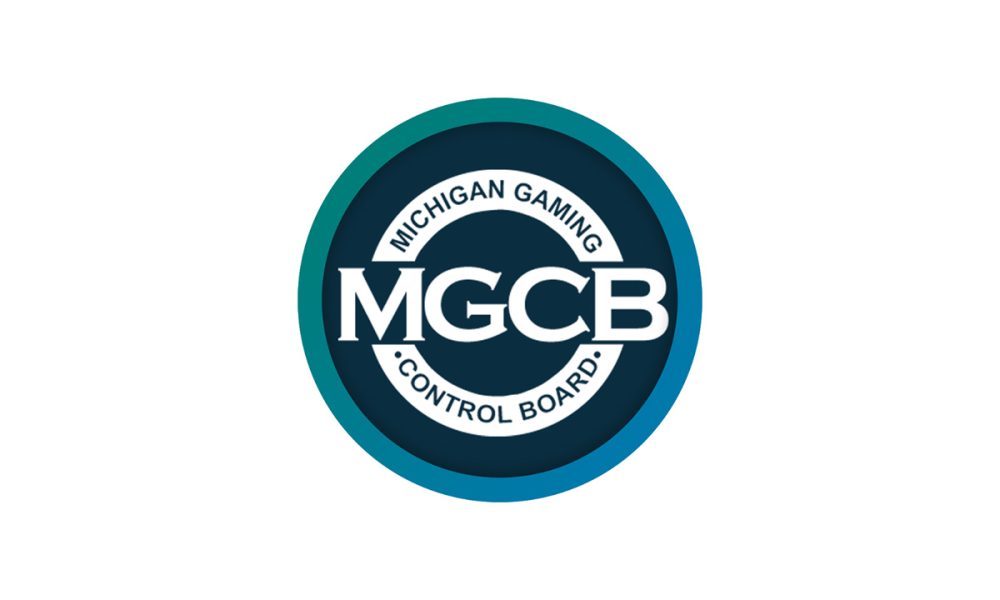

Compliance Updates
Spillemyndigheden: Consultation on Updated Certification Programme for Betting and Online Casino
The Danish Gambling Authority (DGA) has updated the certification programme for betting and online casino because of the introduction of supplier licences from January 1, 2025.
Interested parties can comment on the update. Comments must be sent to the DGA no later than August 19, 2024. Comments must be submitted by using the contact form.
The updated certification programme for betting and online casino will come into force on January 1, 2025. From July1, 2025, it is mandatory to use the new certification programme, but it is recommended that game suppliers and game operators adopt the updated certification programme as soon as possible.
Later this year the Danish Gambling Authority will issue updated standard reports along with the final version of the certification programme.
CHANGES
The purpose with the update is to make it more clear, which requirements licence holders and game suppliers respectively shall comply with looking forward. Furthermore, it is a part of the preparation for the introduction of the DGA’s games register, which will handle RNG- and game certificates.
Several linguistic adjustments have been made throughout the documents. In addition, the following significant changes and additions should be mentioned:
- In SCP.00 ‘General requirements’ the following new definitions have been added: ‘Licence holder’, ‘game supplier’, ‘base platform’, ‘game platform’ and ‘game certificate’. Furthermore, the definition ‘Testing’ has been renamed to ‘Test’ and rephrased, and the definitions ‘inspection’ and ‘gambling system’ have been rephrased.
- Looking forward licence holders and game suppliers are responsible for their own certification. This means that each actor is responsible for having certifications done and reported to the DGA. The licence holder’s former obligation to compile reports from game suppliers has been removed, because looking forward game suppliers will have their own licence and responsibility. Licence holders must still be aware of suppliers of their base platform.
- A general change has been made to the role as supervisor, who is amongst other responsible for signing the standard reports. Looking forward the requirements for a supervisor is based on requirements for a supervisor in e.g., ISO, PCI, or CREST (see section 2.3 in SCP.00).
- Looking forward the deadline for submitting standard reports is 1 month across all documents. Today the deadline is 2 months in several certification areas. This change is made because the licence holder’s obligation for compilation of reports from supplier licences has been removed, which the DGA considers will make the documentation and reporting of the certification process less complex and time consuming.
- The testing- and inspection standards are omitted, and the following new documents are added:
- 01 ‘Requirements for RNG’ is based on requirements from the previous testing standards, but looking forward the document only contains requirements for RNG. The rest of the requirements from the testing standards are moved to SCP.07.01-03 ‘Requirements for games’, which are 3 new documents, which only contains requirements for games. See further information below.
- 02 ‘Requirements for base platform’ is based on requirements from the previous inspection standards, but looking forward the document only contains requirements for the base platform, which primarily covers handling of the player account. The rest of the requirements from the inspection standards are moved to SCP.07.01-03 ‘Requirements for games’. It is only the licence holder who shall be certified in accordance with the requirements in SCP.02.
- 07 ‘Requirements for games’ are based on requirements from the previous testing- and inspection standards, but only contain requirements for games – online betting (SCP.07.01), land-based betting (SCP.07.02) and online casino (SCP.07.03) respectively. Games suppliers shall be certified in accordance with requirements in these documents. If a licence holder produces games for their own game offer, then the licence holder is also obligated to be certified in accordance with these requirements.
- According to SCP.01 ‘Requirements for RNG’ it is possible to postpone the certification up to 1 month. This option is also added to the new documents SCP.07 ‘Requirements for games’. RNG- and game certificates shall be uploaded to the games register 1 month at the latest after the test- and inspection have been completed. Postponing the certification means, that the certification can be completed 1 month later, but the certificate shall still be uploaded to the games register within the same deadline.
- In SCP.04 ‘Requirements for penetration testing’ CREST accreditation is added as a recognized accreditation for companies, who perform penetration testing (see section 2.2.1).
- In SCP.05 ‘Requirements for vulnerability scanning’ CREST accreditation is added as a recognized accreditation for companies, who perform vulnerability scans (see section 2.2.1). Furthermore, CREST CPSA and CRT certifications are added as recognized personal certifications for personnel, who plans vulnerability scans (see section 2.2.2).
- In SCP.06 ‘Change management system’ section 4.3 about the process for approval of system changes has been changed. Since game suppliers will have their own licence looking forward, and thereby have the responsibility for their certifications themselves, they shall no longer seek approval from the licence holder ahead of making a system change. The game supplier must still be aware of situations, where it can be necessary to involve the licence holder and vice versa.
- In SCP.06 ‘Change management programme’ a new section with a requirement about system changes, which include integration between the base- and game platform, has been added. The requirement means, that the licence holder and game supplier shall establish a business process which ensures, that the base- and game platform functions correctly after integration. The DGA do not think, that this requirement will entail further burdens on the licence holder and game supplier, since it must be expected that measures have already been taken today to ensure, that the gambling system functions correctly. The business process shall be approved by the testing organisation in connection with the annual certification of SCP.06.
The DGA draws attention to, that a consequence of the update is, that the certification programme for betting and online casino no longer has the same structure as the certification programme for lotteries and land-based casino.
The post Spillemyndigheden: Consultation on Updated Certification Programme for Betting and Online Casino appeared first on European Gaming Industry News.
Australia
AUSTRAC Intelligence Helps Crack Gold Laundering Case Linked to Gambling

AUSTRAC intelligence sparked an investigation that helped the Law Enforcement Conduct Commission (LECC) to uncover a NSW police officer who sold more than $1.3 million in family gold bars to fund a gambling addiction.
The officer was found by the LECC to have engaged in serious misconduct after taking 12 gold bars, weighing 50 ounces each that belonged to his uncle and was stored underneath his mother’s house.
He falsified know your customer forms to sell the bullion to 2 dealers, claiming the gold was a birthday gift or inheritance and then he used the proceeds on sports betting apps and later admitted to the false information stating he “needed the money”.
AUSTRAC first raised the alarm by flagging transactions, including significant gold sales to a bullion dealer with reported money laundering links.
Operation Dartmoor was launched and uncovered the full extent of misconduct.
The officer resigned from the NSW Police Force and has been referred to the Department of Public Prosecutions.
AUSTRAC CEO Brendan Thomas said the case highlights the risks facing the bullion sector.
“Gambling harm doesn’t just drain bank accounts, it can drive desperate people into crime,” Mr Thomas said.
“When gambling turns to addiction, people often look for fast money and that can mean stealing, fraud or money laundering.
“Bullion is portable, valuable and attractive to people wanting to use it illegitimately.
“If you trade in bullion, you are part of the front line in stopping its exploitation.
“Your AML/CTF controls are the difference between being a trusted dealer or a weak link for crime.
“Every transaction is a potential red flag – it’s your responsibility to look twice, and if needed, report it.”
The post AUSTRAC Intelligence Helps Crack Gold Laundering Case Linked to Gambling appeared first on European Gaming Industry News.
Betty Wins
MGCB Orders Four Offshore Online Casinos to Cease Operations in Michigan

The Michigan Gaming Control Board (MGCB) has issued cease-and-desist letters to four unlicensed online casinos—Betty Wins, Orbit Spins, Pacific Spins Casino, and Yabby Casino—all operated by Tech Zone Inc., a company registered offshore in the Union of Comoros.
The enforcement action is part of the MGCB’s ongoing commitment to protect Michigan residents from illegal gambling platforms that lack oversight, player safeguards, and responsible gaming protections.
“These offshore operators lure players with flashy ads and promises of big winnings, but in reality, they put consumers at serious financial and personal risk. We will continue to take strong action against unlicensed sites to ensure gambling in Michigan is legal, fair, and secure,” said Henry Williams, Executive Director of MGCB.
Under Michigan law, only MGCB-licensed operators are authorized to offer internet gaming and sports betting. Tech Zone’s four brands were found to be illegally targeting Michigan residents, violating the Lawful Internet Gaming Act, the Michigan Gaming Control and Revenue Act, and sections of the Michigan Penal Code.
“Illegal operators may use familiar branding or social media ads to appear trustworthy. But if the site isn’t licensed by the MGCB, it isn’t safe. We encourage all players to check before they bet,” Williams said.
The post MGCB Orders Four Offshore Online Casinos to Cease Operations in Michigan appeared first on Gaming and Gambling Industry in the Americas.
Compliance Updates
CT Interactive grows its certified portfolio in Romania

CT Interactive is strengthening its presence in Romania’s regulated iGaming market by certifying 20 new games, bringing its total portfolio in the country to 101 titles. This is a significant achievement in the company’s European growth strategy.
Among the new certified releases are fan favorites such as Lucky Clover 10, the latest addition to the beloved Clover series featuring vintage-inspired graphics and nostalgic design elements, and 20 Mega Star, a classic fruit-themed slot that combines familiar gameplay with modern visuals to keep players engaged. Both titles have already proven their success across multiple international markets with strong player engagement.
Additionally, CT Interactive is launching its new Buy Bonus product line in the Romanian market. This exciting lineup includes Doctor Winstein Buy Bonus, Duck of Luck Buy Bonus, Fruits & Sweets Buy Bonus, Nanook the White Ghost Buy Bonus, and Hyper Cuber Buy Bonus — all offering thrilling bonus features and enhanced gameplay tailored to local player preferences.
“Certification in Romania is an important part of our European growth strategy,” said Martin Ivanov, COO of CT Interactive. “This expansion not only strengthens our presence but also enables us to offer a diverse and premium range of content to the regulated Romanian market.”
With these new certifications, CT Interactive continues to be a trusted provider of engaging gaming content, offering Romanian operators a broad range of advanced titles fully aligned with local regulatory standards.
The post CT Interactive grows its certified portfolio in Romania appeared first on European Gaming Industry News.
-

 gaming3 years ago
gaming3 years agoODIN by 4Players: Immersive, state-of-the-art in-game audio launches into the next generation of gaming
-
EEG iGaming Directory8 years ago
iSoftBet continues to grow with new release Forest Mania
-
News7 years ago
Softbroke collaborates with Asia Live Tech for the expansion of the service line in the igaming market
-
News7 years ago
Super Bowl LIII: NFL Fans Can Bet on the #1 Sportsbook Review Site Betting-Super-Bowl.com, Providing Free Unbiased and Trusted News, Picks and Predictions
-
iGaming Industry8 years ago
Rick Meitzler appointed to the Indian Gaming Magazine Advisory Board for 2018
-
News7 years ago
REVEALED: Top eSports players set to earn $3.2 million in 2019
-
iGaming Industry8 years ago
French Senator raises Loot Boxes to France’s Gambling Regulator
-
News7 years ago
Exclusive Interview with Miklos Handa (Founder of the email marketing solutions, “MailMike.net”), speaker at Vienna International Gaming Expo 2018













